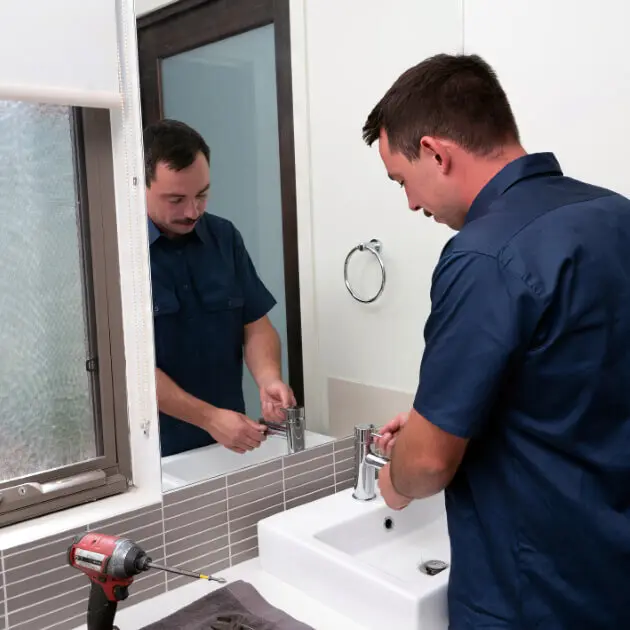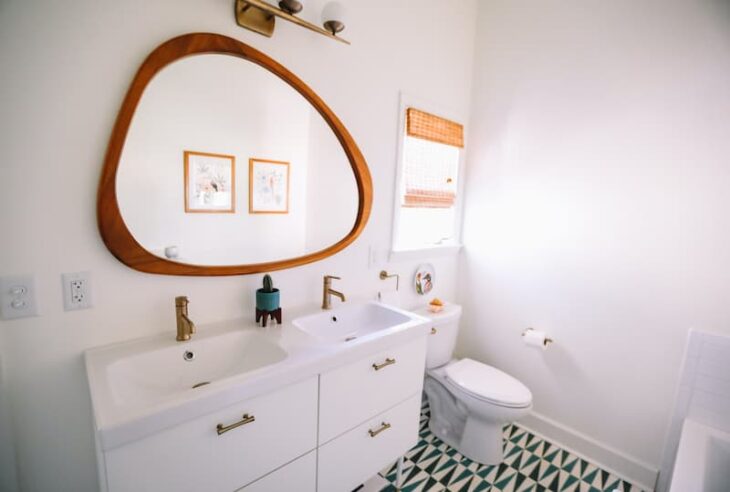What're your opinions concerning 11 Must-Read Tips for Plumbing a New House?

For brand-new property owners, understanding and preserving shower room plumbing can conserve both time and money by protecting against costly issues down the line. Below are some necessary shower room pipes tips to aid you keep every little thing running efficiently.
Familiarize Yourself with the Main Shut-Off Shutoff
Knowing where the main water shut-off shutoff lies in your house is essential. This allows you to swiftly turn off the water supply in case of significant leakages or throughout plumbing emergency situations, preventing considerable water damage.
Regularly Check for Leakages
Tiny leakages can bring about large problems. Routinely inspect under sinks, around toilets, and near pipes fixtures for any signs of leakages. Try to find moisture, little drips, or corrosion. Catching and repairing leakages early can protect against much more major damage and save water.
Don't Neglect Slow Drains Pipes
If your sink or bathtub is draining slowly, it's commonly a sign of a blockage forming. Resolving this early can prevent a complete clog. Use a plunger or a plumbing's snake to clear out particles. Stay clear of utilizing chemical drain cleansers as they can harm your pipelines gradually.
Know What Not to Flush
Bathrooms are not garbage disposals. Avoid purging anything other than bathroom tissue and human waste. Products like wipes, womanly health products, and cotton swabs ought to be dealt with in the garbage to avoid blockages and sewage system backups.
Install Strainers in Drains
Location filters in your sink and tub drains to catch hair and other debris before they enter your pipes system. Cleaning up the filters regularly will aid protect against buildup and keep water flowing freely.
Keep Your Hot Water Heater
Ensure your water heater is readied to an ideal temperature level (typically around 120 degrees Fahrenheit) to prevent hot and lower energy usage. Flush the storage tank each year to eliminate debris buildup, which can lower the effectiveness and life expectancy of your heating system.
Update Your Components
If your home has older components, take into consideration updating to extra effective models. Modern commodes, showerheads, and faucets are created to use less water while supplying excellent pressure, which can significantly reduce your water bill and environmental impact.
Beware with DIY Plumbing Fixes
While it's alluring to deal with all home fixings on your own, be cautious with pipes. Some concerns may need specialist expertise, particularly if they involve primary water lines or sewer repair services. Hiring a professional can occasionally be much more cost-effective than DIY, particularly if it stops additional damages.
Plan For Cold Weather
Shield your pipes from freezing during winter by insulating pipelines in unheated areas like cellars, attics, and garages. During extreme cool, allow cold water drip from taps offered by exposed pipes to aid protect against cold.
Schedule Routine Upkeep
Consider scheduling annual assessments with a certified plumber. They can find issues that you could miss, such as surprise leaks or wear and tear on pipelines and components. Routine upkeep aids prolong the life of your pipes system and can protect against emergencies.
Final thought
Recognizing and maintaining your home's shower room pipes can protect against several typical issues. By adhering to these vital suggestions, you can ensure your shower room remains functional and reliable, saving you time and money in the long run.
Essential Plumbing Tips for Homeowners: Keep Your Pipes Flowing Smoothly
As a homeowner, understanding the basics of your plumbing system can save you time, money, and a lot of headaches. Plumbing issues can range from minor annoyances like dripping faucets to major problems like burst pipes that cause significant damage. This guide provides essential tips to help you maintain your plumbing system and tackle common issues.
Understanding Your Plumbing System
Supply System: Brings fresh water into your home from a municipal source or a well. Drain-Waste-Vent System: Removes wastewater and vents sewer gases outside. Fixtures and Appliances: Includes sinks, toilets, showers, dishwashers, and washing machines. Basic Maintenance Tips
Regular Inspections: Periodically check for leaks, corrosion, and other signs of wear and tear. Look under sinks, around toilets, and near water heaters. Know Your Main Shut-Off Valve: In case of a major leak, you’ll need to shut off the water quickly. Ensure everyone in your household knows where the main shut-off valve is located. Prevent Frozen Pipes: In cold climates, insulate exposed pipes and let faucets drip during extreme cold to prevent freezing. Use Strainers: Install strainers in sinks and tubs to catch hair, food particles, and other debris that can cause clogs. Common Plumbing Issues and Solutions
Clogged Drains:
Prevention: Avoid pouring grease down the drain and use drain screens to catch debris. DIY Fix: Use a plunger or a plumbing snake to clear minor clogs. For stubborn clogs, a mixture of baking soda and vinegar can sometimes help. Leaky Faucets:
Prevention: Replace washers and seals regularly. DIY Fix: Turn off the water supply, disassemble the faucet, and replace worn parts.

Request Service